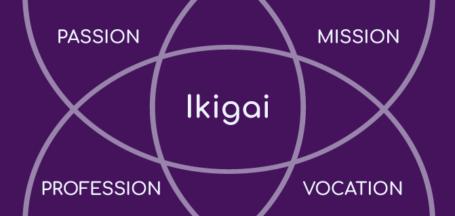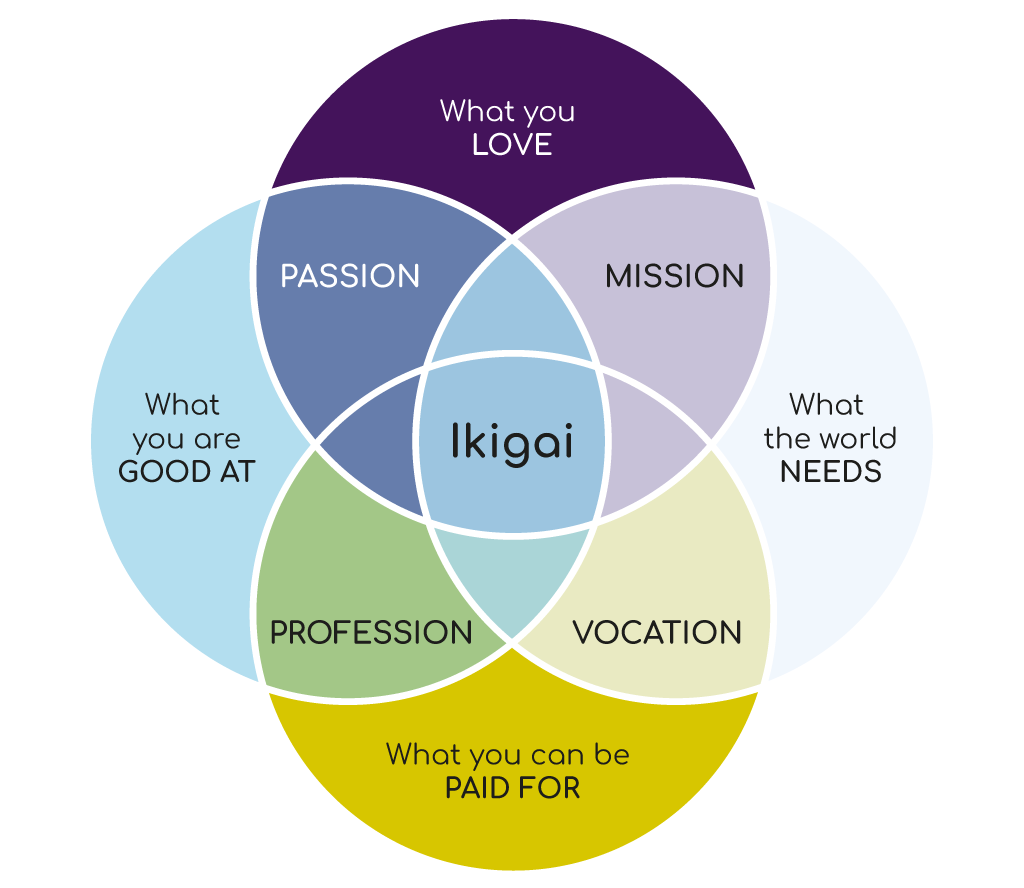Do you consider that your life is always meaningful? In today’s digital world, we are facing stimuli and distractions everywhere and might get lost in them in a way that we can’t find back into living the moment. Seeing life through the lens of society, living has an actual frame where we might end up as good workers until we retire and then fall into a hole of uselessness. How meaningful is that?
According to ancient Japanese philosophy, there is more to it. “Ikigai” describes a way of living where life gets an overall meaning and focuses on the here and now. The word consists of the two syllables “Iki” and “Gai” meaning “life” and “worth”. At its core, the philosophy follows a way of living that consists of 4 areas arranged in overlapping circles, which can be described as a Venn diagram:
Does Ikigai still find application in today’s world?
The answer is yes. Dan Buettner, founder of Blue Zones® and New York Times bestselling author, has discovered 5 places in the world where people live the longest and healthiest. Alongside Sardinia (Italy) Nicoya (Costa Rica), Ikaria (Greece), and Loma Linda (California), there is Okinawa in Japan, which is known for the longest-living people in the world. What researchers found was that the inhabitants of these regions followed 9 special habits. One of them is living knowing our sense of purpose, which the Okinawans call “Ikigai“. Purpose is one of the most powerful motivation factors. There are two sorts of motivation sources: intrinsic motivation, where your drive of action comes from within (purpose belongs to it), and extrinsic motivation, where your drive of action is caused by external stimuli such as financial reward. Interestingly, neuroscience has shown that an intrinsically motivated lifestyle, with a purposeful life, causes greater happiness through increased brain activity in the prefrontal cortex.
People spend 1/3 of their life at work. Considering this proportion, we need to ask ourselves if what we do is meaningful. The answer is very individual. Some might say that the work itself gives their life meaning, but for someone else, it might go far beyond that.
Finding your personal “Ikigai” is not a matter of a couple of hours, but rather a process of getting to know yourself better and asking yourself questions that matter. You can start reflecting about:
What brings you the most joy, to discover what you love doing?
What your unique talent is, to find out what you can do best?
What you can be paid for?
What problem this world has that you can solve?
Some research also shows that people tend to become happier when what they do makes a difference in others’ lives. Whatever your stage in life is, it is never too late to make purposeful decisions, and start living a meaningful life.
Buettner, D. (2010). Blue Zones: Lessons for Living Longer from the People Who’Ve Lived the Longest. National Geographic Society.
García, H. & Miralles, F. (2017). Ikigai: The Japanese secret to a long and happy life. Penguin Random House.


